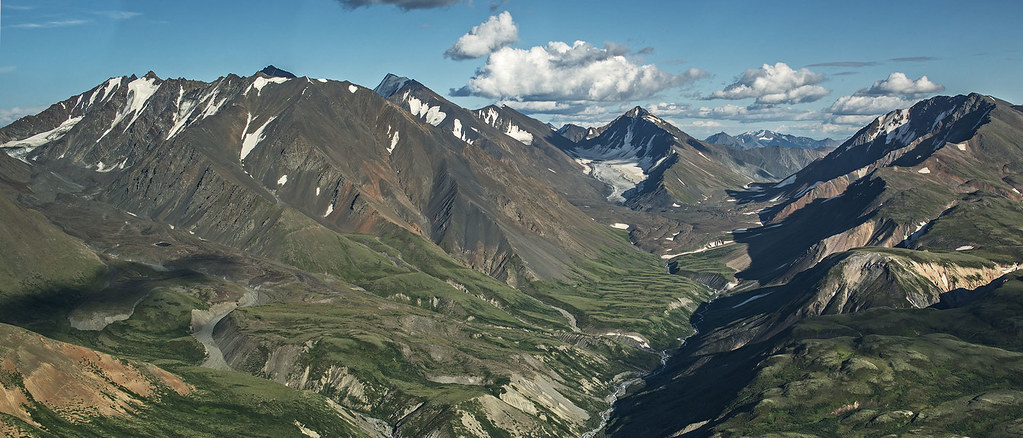Over the course of four short days, a river that once flowed from one of Canada’s immense glaciers vanished entirely. The phenomenon — which scientists are calling “river piracy” — is the first observed case of its kind and serves as a stark reality that global warming is changing the world’s geography irreparably.
In 2013, scientists observed that the Slims River ran three meters deep, and swiftly carried meltwater from the glacier in Canada’s Yukon territory toward the Bering Sea. That all changed last May during an unusually warm spring when a 30-meter tall canyon formed at the end of the Kaskawulsh Glacier, according to a study published in Nature Geoscience.
As a result, the melt from the glacier rerouted, mostly flowing into the Alsek River and towards the Pacific Ocean — thousands of miles away from its original destination.

Daniel Shugar, a University of Washington Tacoma professor who published the study on Monday, and his colleagues used drones to survey the landscape and investigate the changes in the water coursing away from the thinning glacier.
River piracy normally takes tens of thousands of years to occur but in the case of the Slims River, it happened within a few months, according to the study’s co-author Jim Best of the University of Illinois. The phenomenon is the first observed example in modern times.
"We were really surprised when we got there and there was basically no water in the river," Shugar said of the Slims. "We could walk across it and we wouldn't get our shirts wet. It was like a snake-shaped lake rather than a river." At midstream, the water levels barely reached above the scientists’ high top sneakers.
Read More: These Scientists Are Shipping Ice From Bolivia to Antarctica in a Race Against Climate Change
The river delta, which once sat at the edge of the Slims River, had transformed into a place full of "afternoon dust storms with this fine dust getting into your nose and your mouth," Best said.
The scientists concluded that the result “is likely to be permanent.”
Surrounding landscape, as well as ecosystems and agriculture that have sprung up around the water source could suffer broad consequences from the shift. Headlines from The Canadian Broadcasting Corporation last year read “Dry Docks Don’t Float” when extremely low water levels on a nearby lake left docks for lakeside cabins — which are only accessible by boats — stranded.
Read More: The Arctic Is an Unbelievable 36 Degrees Hotter Than Normal
“As the world warms and more glaciers melt, populations dependent upon glacier meltwater should pay special attention to these processes,” concluded Rachel M. Headley, an assistant professor of geoscience and glacier expert at the University of Wisconsin-Parkside.
Both studies suggest that the dramatic large-scale retreat of glaciers can almost certainly be attributed to humans and the greenhouse gases they produce. The scientists further acknowledged that the number of river piracy events such as this one may accelerate.
“We may be surprised by what climate change has in store for us,” Shugar told the New York Times. “And some of the effects might be much more rapid than we are expecting.”
